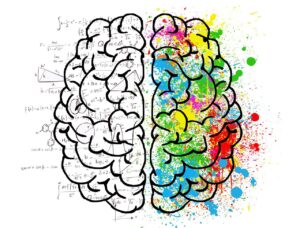Strategies to Manage Anxiety and Stress: Finding Inner Peace
Strategies to manage stress and anxiety are essential for maintaining mental well-being. One effective approach is mindfulness, which involves staying present in the moment and acknowledging your emotions without judgment. Breathing exercises and meditation are valuable tools in this regard, helping to calm the mind and reduce stress levels.
Cognitive-behavioral strategies of stress and anxiety management focus on identifying and challenging negative thought patterns. Physical activity also plays a pivotal role, as exercise triggers the release of endorphins, the body’s natural stress-relievers.
Additionally, maintaining a well-balanced diet, ensuring adequate sleep, and seeking support through therapy or support groups are vital strategies for mitigating the impact of stress and anxiety on one’s life.

Table of Contents
- Understanding Anxiety and Stress
- The Importance of Sleep
- Therapy for Emotional Well-being
- Management Through Meditation and Yoga
- Unraveling the Symptoms
- Finding Relief through Nature’s Bounty
- The Role of Vitamins in Stress Management
- A Cup of Calm: Herbal Teas
- The Therapeutic Power of Exercise
- Embracing the Peaceful Art of Yoga
- Crafting a Personal Stress Management Plan
- Building Resilience through Positive Thinking
- Aromatherapy: Soothing Scents for Stress Relief
- The Impact of Social Connections
- Achieving Work-Life Balance
Understanding Anxiety and Stress
Stress and anxiety are common reactions to life’s obstacles. While some stress can be motivating, excessive and chronic stress can be detrimental to your health. Understanding these emotions is the first step in managing them effectively.
The Importance of Sleep
Getting adequate sleep is the cornerstone of managing anxiety and stress. A well-rested mind and body are better equipped to cope with life’s demands. A good night’s sleep is nature’s most potent stress-reliever.
Therapy for Emotional Well-being
Therapy, whether through counseling or support groups, can provide valuable tools to manage anxiety and stress. Speaking with a therapist allows you to explore the root causes of your anxiety and develop strategies for handling it.
Management Through Meditation and Yoga
Meditation and yoga are ancient practices that promote relaxation and emotional balance. Incorporating these techniques into your daily routine can help you achieve a calmer state of mind.
Unraveling the Symptoms
Recognizing the symptoms of anxiety and stress is crucial. These may include increased heart rate, restlessness, irritability, and muscle tension. Identifying these signs early can help you take action before stress escalates.
Finding Relief through Nature’s Bounty
Nature offers an array of remedies to help you manage anxiety and stress. Exploring natural solutions like herbal supplements and remedies can be a game-changer.
The Role of Vitamins in Stress Management
Certain vitamins play a vital role in stress management. For instance, vitamin B complex and vitamin C are known for their stress-reducing properties.
A Cup of Calm: Herbal Tea
Herbal teas like chamomile, lavender, and valerian root have soothing properties that can help alleviate anxiety and stress. Enjoy a cup of your favorite herbal tea to relax and unwind.
The Therapeutic Power of Exercise
Exercise is not just beneficial for your physical health; it’s a powerful stress-buster. Regular physical exercise releases endorphins, which naturally elevate mood.
Embracing the Peaceful Art of Yoga
Yoga blends physical postures with breathing techniques, meditation, and stress reduction. It’s a holistic approach that has advantages for the body and the mind.
Crafting a Personal Stress Management Plan
Every individual is unique, and so are their stress triggers and coping mechanisms. Crafting a personalized stress management plan can be a game-changer in your quest for inner peace.
Building Resilience through Positive Thinking
Positive thinking can help reframe your perspective and build resilience against stressors. It’s about training your mind to focus on the silver linings in life.
Aromatherapy: Soothing Scents for Stress Relief
Essential oils are used in aromatherapy to produce a peaceful environment.
The Impact of Social Connections
Strong social connections and a support system can be your safety net during times of stress. Talking to friends and family can provide emotional relief and practical advice.
Achieving Work-Life Balance
Maintaining a balance between your professional and personal life is essential for managing stress. Recognize your need for self-care and learn to priorities it.
Conclusion
Anxiety and stress are inevitable aspects of life, but they need not dominate your existence. By implementing the strategies and tips discussed in this article, you can regain control over your emotional well-being and find inner peace. Remember that your journey toward managing anxiety and stress is a personal one, and it may require a combination of these strategies to be most effective. Start by prioritizing sleep, exploring therapy, and embracing natural remedies. With commitment and practice, you can lead a more peaceful and stress-free life.



